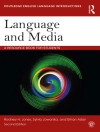This handbook explores language policies and their impacts in Africa, examining the different language policies in each country from pre-colonial to post-colonial times. Most African countries are multilingual, apart from a handful which are said to be quasi-monolingual. The authors in this handbook investigate language policy in education, media, legal courts, government documents and other public domains, and show how these policies shape learning and delivery of services to the citizens. The volume also pays special attention to the roles assigned to minority languages in Africa, most of which are endangered. The contributions also investigate how these language policies are influenced by the history of colonialism and language attitudes emanating from colonial rule. This handbook will be of interest to a diverse audience of readers, including those interested in African languages, language planning and policy, and African history and education.
Tabla de materias
Chapter 1: Introduction.- Part I: Language Policies in East Africa.- Chapter 2: Language Policy in Kenya by Jonathan Choti, University of Michigan, USA.- Chapter 3: Language Policy in Uganda by Caesar Jjingo, Makerere University, Uganda.- Chapter 4: Tanzania, Mainland by Filipo Lubua, University of Pittsburg, USA.- Chapter 5: Tanzania, Zanzibar by Maryam Ismail, State University of Zanzibar, Zanzibar.- Part II: Language Policies in Central Africa.- Chapter 6: Language Policy in Burundi by Leonard Muaka, Howard University, USA.- Chapter 7: Language Policy in Democratic Republic of Congo by Eyamba Bokamba, University of Illinois, Urbana Champaign, USA.- Chapter 8: Language Policy in Rwanda by Pascal Ikomeye, Daystar University, Kenya.- Part III: Language Policies in West Africa.- Chapter 9: Language Policy in Benin by Desire Baloubi, Norfolk State University, USA.- Chapter 10: Language Policy in Burkina Faso by Esther Some, Ecole Normale Superieure de Koudougou, Burkina Faso.- Chapter 11: Language Policy in Cabo Verde by Abel Djassi Amado, Simmons University, USA.- Chapter 12: Language Policy in Cameroon by Paule Ngo Mbai, Howard University, USA.- Chapter 13: Language Policy in Senegal by Mamarame Seck, University of Sheikh Diop, Senegal.- Chapter 14: Language Policy in Ghana by Josephine Dzahene-Quarshie, University of Ghana, Ghana.- Chapter 15: Language Policy in Mali by Amadou Beidy Sow, Indiana University, USA.- Chapter 16: Language Policy in Nigeria by Harrison Adeniyi-Lagos State University, Nigeria.- Chapter 17: Language Policy in Gambia by Gambi Camara, University of Pittsburg, USA.- Chapter 18: Language Policy in Côte d’Ivoire by Jean-Claude Dodo, Felix Houphouet-Boigny University, Cocody-Abidjan.- Chapter 19: Language Policy in Togo- (TBA).- Part IV: Language Policies in the Horn of Africa.- Chapter 20: Language Policy in Ethiopia by Belay Alem, University of Florida, USA.- Chapter 21: Language Policy in Eritrea by Yonas Mesfun Asfaha, Oxford University, UK.- Chapter 22: Language Policy in Somalia by Maryan Ali, Howard University, USA.- Part V: Language Policies in North Africa.- Chapter 23: Language Policy in Morocco by Ali Alalou, University of Delaware, USA.- Chapter 24: Language Policy in Sudan by Omer A. El-Garrai, Ohio University, USA.- Chapter 25: Language Policy in Algeria by Souheila Hedid, Universite Constantine, Algeria.- Chapter 26: Language Policy in Egypt (TBA).- Chapter 27: language Policy in Tunisia (TBA).- Part VI: Language Policies in Southern Africa.- Chapter 28: Language Policy in Malawi by Sam Mchombo, University of California-Berkeley, USA.- Chapter 29: Language Policy in South Africa by Buyiswa Mini, University of Fort Hare, South Africa.- Chapter 30: Language Policy in Zimbabwe by Ndlovu Eventhough, university of Zimbabwe.- Chapter 31: Language Policy in Lesotho by Kelello Rakolobe, Lesotho University.- Chapter 32: Language Policy in Botswana (TBA).- Chapter 33: Language Policy in Namibia- Beausetha Bruwer, University of Namibia.- Chapter 34: Language Policy in Mozambique by Feliciano Chimbutane.- Chapter 35: Language Policy in Angola (TBA).- Chapter 36: Language Policy in Zambia- Gabriel Simungala, University of Western Cape, South Africa.- Chapter 37: Conclusion.
Sobre el autor
Esther Mukewa Lisanza is an assistant professor in the Department of African Studies at Howard University, USA. Her main research focuses on African languages, African education, and language policy in education. She is currently completing a co-authored book on the interplay between African languages and indigenous knowledge.
Leonard Muaka is an associate professor at Howard University, USA. His main research focuses on African linguistics, language maintenance and shift, political discourse and language use and choice in urban and rural Africa. He is currently co-editing a special volume on Language Planning and Healthcare in Africa.












